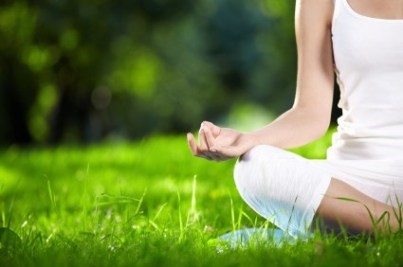
In today’s busy world of working, networking, and the ongoing assaults of emails, texts, and family problems, we are saturated with the stress of psychological overload. Our minds are rarely at rest and our bodies are paying the price. You finish the end of a normal day and find that stress has become your partner.
Meditation is one easy way to combat the effects of daily stress, and take back control of your health. Just 20 minutes a day can reduce stress and help your brain to recharge.
The Benefits of Meditation
Throughout my own work as a researcher and educator with a Ph.D. in psychology and a Doctorate of education, I have found that simple meditation techniques can do so much, including:
- Lower your blood pressure
- Increase your circulation
- Throw more blood to the prefrontal cortex
- Enhance your executive function, working memory, concentration, and visuospatial processing
- Help you hold images longer
- Process information better
- Allow for contemplation, intuition, and creativity to thrive.
The Neuroscience Behind Meditation
Scientists and neuroscientists, through the use of functioning magnetic resonance imaging and cat scans, can now demonstrate the effect of meditation on the brain. Cortisol, the stress hormone, can be reduced by simply controlling your breath through the use of mindful meditation. The default network in your brain which is connected to both introspection and concentration slows down activity when meditating. When the mind wanders it tends to concentrate on negative issues thus creating stress but through meditation that function is less active.
In a 7-year study at MIT with the Dalai Lama, several of his monks, and non-meditators, it was established that not only could meditators hold images longer, have more blood sent to the pre-frontal cortex, and have their memory and cognitive function increased, but also non-meditators who were instructed to meditate over several months saw the same benefits. Further, experienced meditators use their brain like an orchestra, connecting various networks whether meditating or not.
There are many neurological advantages to meditation, including:
- Calming the amygdala where our fight or flight and emotions live
- Strengthening impulse control, which allows you to self-manage stress, pain, depression, and drug and alcohol issues.
Mindfulness Programs at Work and in Healthcare Facilities
Emerging data indicates that by lowering stress and anxiety, meditation can be a beneficial practice in the workplace, as a calming tool for overwhelmed workers. In fact, Google has a very popular program called “Search Inside Yourself,” which teaches mindfulness.
Moreover, some universities, public schools, hospitals, and health care centers have initiated meditation and mindfulness programs. Because stress has been connected with illness over the years, the approach of using meditation in hospitals and healthcare facilities is a particularly important one. As a result, meditation has moved from an outlier position, into the mainstream of American culture.
How to Begin a Meditation Practice
Meditation does not have to be associated with any religious practice. Viewed as secular and scientific, it is easy to get started.
- Set your alarm for 20 minutes, twice a day. This is the time you will be meditating. By setting your alarm, you relax and don’t have to worry about how much longer you have to go.
- Simply sit or lie down with your eyes shut in a comfortable position.
- In the beginning, your mind will wander and bring in outside sounds and thoughts; just invite all of your distractions into your meditation, don’t resist them. What resists persists. Ultimately, all of these distractions will fall away as you learn to focus your mind in meditation.
- Some people like using a mantra, some people like using a word. The power of a mantra is that you can’t assign a meaning to it, therefore you can’t associate any thoughts with it as you empty your mind. A simple mantra such as “om” will do.
- Before you begin to meditate, relax your body by isometrically tensing and releasing all the muscle groups starting from the tips of your toes and ending at the top of your head. Just squeeze and release and check in with your body, making sure that you are relaxed.
- Then, follow your breath. As you breathe in you will notice that the breath is cool, as you breathe out you will notice that your breath is warm. Focus on your breath and bring in your mantra while concentrating on the bridge between your eyes.
This is how you meditate.
The Power of Meditation
Through meditation, you actually develop consciousness. In fact, by accessing your own unconscious you gather insight into your conflicts and find the capacity and resources to meet them. Meditation is so powerful, that if I were dying and had only one gift to give to my family, it would be the word meditation.
In my own life, faced with the death of my daughter Dawn, the only solace I could find was the time I spent in meditation. In all major religions, the deepest traditions concentrate on the practice of meditation to access the unconscious — whether Sufism, Buddhism, Judaism, Hinduism, Islam, or Christianity — in the deepest meditations, the practice will lead you inside and connect you back to your central core.
Whether it is a psychological journey or a spiritual journey- the model is the same: the path to consciousness. In our secularly materialistic culture, dominated by tabloid journalism, and thriving with celebrity, meditation gives you time out and has the capacity to open you to the wholeness in yourself. In our world of artificial images,

